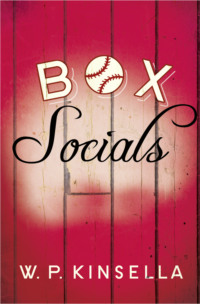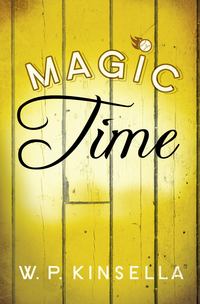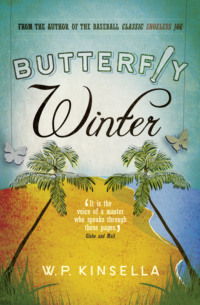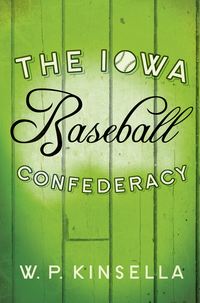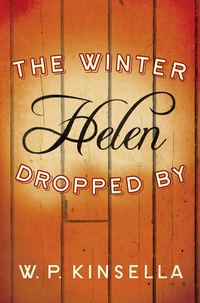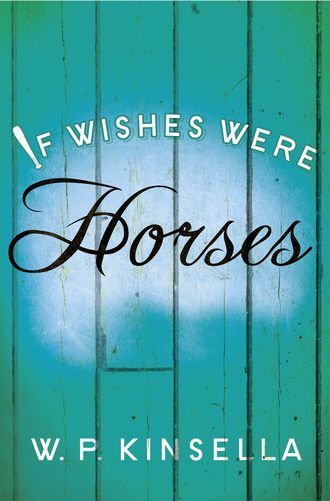
Полная версия
If Wishes Were Horses
I smile, but draw two bland, blank stares for my trouble.
When and how did my moderately orderly life, like a train gliding along, bumpita, bumpita, on a straight track, suddenly encounter an invisible switch and shunt without so much as a quiver onto a parallel track traversing a different and maddening country?
I have made some bad choices. Beginning in high school in Lone Tree, Iowa, through college and a mediocre baseball career, through my stint as a reporter for a major Southern California newspaper, there are so many things I wish I could change.
1. I shouldn’t have refused to pitch on less than four days’ rest in the Iowa State Baseball Championships.
2. I shouldn’t have been so quick to abandon my high-school sweetheart, Maureen Renn.
3. I should never have shot my mouth off to Sports Illustrated.
4. I should never have believed my eyes that night in the desert outside Los Angeles.
After that, the list lengthens to infinity.
I try another tack.
‘Picture this, guys! Southern California. The not-too-distant past. I am thirty-one years old and living with a dental technician named Rosslyn Quinn, who is the sole source of income in our household. I have just been totally destroyed. Pounded into the ground by a herd of buffalo. Crapped on from a great height. Wile E. Coyote at the end of a cartoon. Can you guys relate to that?’
They nod. Maybe I’m getting somewhere.
‘I was a reporter for a famous Southern California newspaper. Not a tabloid. We reported news. We didn’t create news.’
I had enough journalistic credits that the famous newspaper was not averse to hiring me. In the two years I was with the famous newspaper I was surprisingly successful, though, looking back, I think I may have overestimated both my abilities and influence. I made the age-old mistake of believing my own press clippings. As a journalist, I was a minor celebrity, something I had never been able to achieve in sports.
I have to admit I have a small flair for the dramatic and I enjoyed playing the part of a hot-shot reporter.
I started out doing person-on-the-street interviews. ‘What do you think we should do to achieve world peace?’ ‘How do you feel about gun control?’ In my spare time I began investigations into shady small businesses and discovered I had a unique ability to write up the results. The public loved it, and I got to feeling like Mike Wallace as I walked smiling into an office, backed up by a concealed tape recorder, ready to trap some grifter selling nonexistent graveyard plots in the desert to unsuspecting senior citizens.
What I suspect is that I’ve been living in two dimensions at the same time, or part time in each. Besides the frightening events that have happened to me, I believe I have received occasional glimpses of what might have been.
For instance, one night I saw myself and Maureen Renn walking down the steps of the great stone court house in Iowa City. It was late fall and the leaves were yellow, but the sun was blazing and the sky blue as tropical water. We were holding hands and had just come from getting our marriage license.
In Iowa when a couple marries, either one may take the other’s name, or they may choose a neutral name. We could have become the McCoys or the Renns, or we could have decided to to be the Terwilligers or the Underwoods, or any of the billion possible names floating about. At Maureen’s insistence we were going to become the McCoys.
‘Don’t you want to keep your own name?’ I asked.
‘Honey, I’ve been writing my name as Mrs. Joe McCoy ever since I was ten years old. Mrs. Joseph Michael Armbruster McCoy. Mrs. J.M.A. McCoy. I wasted half my school notepaper from fifth grade on practising variations of my married name, and nothing is going to take that away from me.’
Maureen stopped in the middle of the long flight of stone stairs. She was wearing a yellow-and-white summer dress with white accessories; her plum-colored hair, which she usually wore straight, had been curled at the ends.
‘It’s not every day I get a marriage license,’ she had said that morning as she jumped into my car and bounced across the seat to kiss me. I was used to Maureen in jeans and a denim jacket. She was so womanly in her bright dress and white sandals with crisscross ties that rose several inches up her calves.
She stepped one stair above me so our faces were even. Then she hugged my neck and kissed me. And seeing her so happy made my heart swell with love, and I knew that marrying Maureen was right, no matter what our families or anyone else said.
Every morning, on my desk at the famous Southern California newspaper, I would find fifty phone messages alerting me to various shady business operations. Within six months I had every bait-and-switch advertiser within fifty miles of Los Angeles trembling in his suede shoes and shiny suit.
Readers loved what I was doing. One of my competitors described me a twenty-five-cent Ralph Nader, which I decided to take as a compliment. There was a rumor that A Current Affair was going to do a segment on me, that they were going to nickname me Fearless Joe McCoy.
I was just starting to snoop around the edge of organized crime, had established famous and unusual underworld contacts like Pico the Rat and Bulrush Moe, and, as any investigative reporter worth his weight in clichéd situations should, had developed an enemy on the police force: Detective Nathan Wiser, LAPD.
Then came the extraterrestrial thing. Before the extraterrestrial incident, I was an investigative reporter with a reputation for both honesty and competence. I was gathering a faithful readership. I was the senior editor’s fair-haired boy. The extraterrestrial story ruined my life.
I received a telephone call from a teenage girl. Her voice was high pitched and breathless; in the background a radio blared rock music.
‘You the guy does investigatey stuff?’
‘Yes, I am,’ I said.
‘McCoy?’
‘Yes.’
‘I seen somethin’ weird. I mean real weird, you know what I mean?’
‘I’m familiar with weird,’ I said. ‘What exactly did you see, and where did you see it?’
‘This here thing came down out of the sky. You know what I mean? We really seen it. Me and Buster.’
‘Buster?’
‘My boyfriend. My old man, sort of, only we don’t live together alla time. See, we just drove out to the desert to … you know, be alone. Buster parked his car, and we had this sleeping bag. We were down in this little arroyo, you know, outa sight sort of, when this thing fuckin’ near lands on us. Pardon my French, but it scared us shitless …’
She rambled on for about five minutes. I listened intently and commented at appropriate moments. Her manner was straightforward, truthful, with a certain naivete. She put Buster on the phone. He was the strong, silent type. ‘Yeah,’ was the only word in his vocabulary. I recounted the story to him point by point, and he agreed with everything the girl had told me. Then the girl, whose name was Bertha, got on the line and told it all to me again.
I was intrigued because of the way she told the story. Here was a person who believed what she was telling me. There was probably a logical explanation, but this girl believed. I had taken enough hoax calls to know when someone was putting me on. I wrote down the address and drove out to see her and Buster.
Bertha lived in a dilapidated frame house in a lower-lower-class neighborhood on the edge of the desert. There were gaps between the houses like missing teeth, the bleached bodies of abandoned cars were strewn about, doorless refrigerators and freezers gleamed like patches of snow on the sand and brittle brown grasses.
Bertha was about sixteen, with a wide, pink face surrounded by lank, collar-length blonde hair. She was probably fifty pounds overweight; the top button of her jeans was undone and an inch of pink flesh showed between the jeans and the bottom of a black T-shirt that used to have glitter on the front in the shape of some rock star’s face. She was barefoot, sitting at a filthy kitchen table covered with empty Pepsi bottles and full ashtrays.
We got into Buster’s car, a sun-faded 1971 Ford that had been sky-blue, and drove about three miles into the desert. It was evening rush-hour on one of the hottest days of the year.
Bertha recounted her story again, yelling over the shriek of the car radio. The radio was cunningly hidden so I couldn’t find a switch to lower the volume; and Buster, who turned out to be about twenty, long and thin, in tight jeans and cowboy boots, didn’t look like the type you asked on first acquaintance to turn down his radio.
I couldn’t catch Bertha in any lies. Buster confirmed everything she said. In person he nodded and grinned, instead of saying ‘Yeah.’ He had a raw, high-cheekboned face, and hair that he must have oiled at a Texaco station. ‘Born to lose’ was tattooed on his left forearm. A dragon’s head on his right bicep peeked from the sleeve of a gray T-shirt mottled with grease and sweat stains.
I felt uneasy. Hadn’t there been a guy and girl like this in Phoenix who drove people out into the desert and murdered them? But Bertha didn’t appear to have the ability to con anyone. Both she and Buster were a little in awe of me, thrilled that a well-known investigative reporter would take them seriously, after their friends, families and, I’m sure, other newspaper people had dismissed them as lunatics.
‘I was gonna call the National Enquirer,’ said Bertha, ‘but I couldn’t figure out how. I’ve never made a long-distance call.’
Buster grunted, grinned and nodded.
What had been somewhat of a road dwindled to a trail, then to tire tracks on sand. We drove another half-mile through sage, brittlebush and creosote trees, and parked in a gully.
We tramped over barren sand hills, past small hummocks sheathed in bleached grass. A lizard scuttled out of our way; some kind of large insect thumped against the knee of my pants.
‘See, here it is,’ said Bertha, as we arrived at the base of a dome-like hill. Two oblong, grid-like patterns were burned into the earth.
‘That’s where it landed.’
I knelt down and examined the tracks. Each one was the size of a very large snowshoe. The patterns had burned through the sparse grass and into the sandy soil, a heavy brand perhaps three-quarters of an inch deep.
‘We were laying right over here,’ Bertha said, shaking out a cigarette from a beat-up pack she extracted from the front pocket of her jeans. She pointed to a small, natural shelf in the side of the hill. ‘Fuckin’ near scared us to death, right Buster?’
Buster grinned and nodded.
I tried to imagine what could have made the imprints, tried to guess what Bertha and Buster had actually seen.
‘Well, do they look like flying saucer tracks?’ asked Bertha.
‘I’ve never had any first-hand experience,’ I said.
Bertha looked disappointed. Then she grabbed Buster’s arm, rubbing her nose against his bicep.
‘Tell him the surprise,’ she said.
Buster just smiled, a shifty-eyed, shit-eating smile.
‘They came back,’ said Bertha. ‘We first seen ’em two nights ago. They came last night and I bet they’re comin’ back tonight. I think it was because we didn’t run and didn’t have a gun or nothin’. Last night, they came and looked us over again. They kind of measured us, if you know what I mean.’
‘They?’ I said.
‘Well, you know, I could feel them. That machine made comforting sounds, like a baby when it’s talkin’ itself to sleep. But the light that came out of it touched us, like all over. Right, Buster?’
Buster smiled and nodded.
We drove back to the rickety, basementless house. The home belonged to Bertha’s mother, who arrived in a rusting Pontiac, accompanied by a couple of unkempt, tow-headed boys she must have retrieved from a babysitter.
The mother wore a grayish waitress uniform; her mud-colored hair was limp. She wasn’t much over thirty, but everything about her, including her clothes and hair, looked wilted and tired. She had probably been beautiful as a teenager, but now every part of her was slouching. I decided she had probably had a long succession of boyfriends, husbands and lovers just like Buster.
‘Geez, I thought reporters had better things to do than listen to dumb kids,’ she said, after Bertha introduced us. ‘Don’t tell me you believe this flying saucer crap. These kids are just looking for some attention.’
‘I photographed the tracks out there on the hill,’ I said a little defensively. ‘They’re unlike anything I’ve ever seen before. Besides, I make a point of checking out every lead,’ I added, trying to sound professional and gracious at the same time.
‘Suit yourself. Hey, I loved the way you nailed that little rat who was selling phony water softeners. He worked this area, you know, sold to the old lady in the yellow house across the way …’
Bertha’s mother served canned tomato soup thinned with water, and sandwiches containing one slice of a pinkish substance that may or may not have had a protein base, followed by instant coffee served in cracked mugs, accompanied by Carnation milk with two yellow lines dribbled down the label.
I phoned Rosslyn to tell her I’d be late. Looking back, I realize she didn’t even ask where I was or what I was working on. But then, I didn’t ask her how many people’s mouths she’d immortalized in plaster of Paris that afternoon. Our relationship was not in wonderful shape even before I became terminally unemployed.
I have no idea why I got together with Rosslyn. I suspect she had no idea why she chose me. After I retired from organized baseball I took a long holiday. I went to Honolulu. I wasn’t worried about finding work; I had a journalism degree to fall back on and a few dollars in the bank, though I’d never made big money in baseball. I was to some extent at loose ends, suffering, in a mild form, from the terrible letdown professional athletes undergo when they are suddenly thrust into the civilian world.
I met Rosslyn in a singles bar. She had her own business, was two years older than me, sensible, dedicated. She was, as they say, upwardly mobile, the direction I intended to be traveling. Rosslyn was everything the women I’d known throughout my baseball career were not. We also had Southern California in common; I had made my home there every off-season. A week after we returned from our Hawaiian holiday we moved in together. We both thought it was time to settle down; the fact that we weren’t the right people for each other was incidental.
At Bertha’s we watched TV on a dusty, finger-marked black-and-white set until the sun went down. Then the three of us got in Buster’s car and again headed for the desert.
We sat on the ledge above where Bertha and Buster had been when the spaceship first landed.
‘I wonder what they thought of us,’ Bertha said. ‘We had the sleeping bag and we were, like, going at it, if you know what I mean.’
‘A much better introduction to Earth than being met by a dozen armored tanks and a trigger-happy SWAT team,’ I said.
‘You do believe us, don’t you, Joe?’ Bertha asked.
I paused for a long time. ‘I believe you’ve seen something. I believe you believe what you’re telling me.’
Bertha smiled, and, as she did, her wide, placid face was suddenly lighted the color of pink neon by the spaceship flitting over the nearest hill like a gigantic firefly. It landed in the tracks it had previously established.
‘Son of a bitch!’ said Bertha.
The only other time I experienced anything similar was when I was sent into a game in Yankee Stadium in the ninth inning, before fifty thousand screaming fans, the bases loaded, two out, and our team up by two. I remember feeling like I might faint, then imagining how ridiculous I’d look, a couple of runs scoring as the third baseman tried to pry the ball out of my glove. I got out of the inning and game with one pitch: I hung a curve ball that Craig Nettles hit in the gap in left-center to empty the bases.
What did the spaceship look like? Visualize one of those egg-shaped, plastic containers in which pantyhose are packaged. Picture one fifteen feet long and five or six feet high; then imagine it full of pink cotton candy.
It glided in like a cartoon insect. Bertha had been remarkably accurate in her description of the vehicle. Once it landed it sat silently, glowing baby pink, for what must have approached ten minutes, emitting comforting sounds.
The three of us just stood, awe-struck. For the first five minutes Buster and I each held one of Bertha’s pudgy hands. I wanted to touch the craft, but I don’t know if I lacked the nerve or if I was prevented from walking forward by some force within the machine.
Finally, I remembered my camera, and I began photographing the craft. I scurried around snapping photos like a Japanese tourist.
All the time the spaceship was there I had the feeling I was being touched, investigated, ‘measured,’ as Bertha had said, by gentle, loving hands.
Gradually I relaxed. I finished photographing, or, more accurately, ran out of film, and ended as we had begun, the three of us holding hands. I have never felt so at peace.
Then, the craft lifted one snowshoe-like foot up into its body, lifted the other, hovered an instant and was gone in the direction it had come from, leaving us bathed in a sweet, pink glow.
‘So now you’ve seen it,’ said Bertha, letting go of my hand, fumbling in the pocket of her jeans for cigarettes. ‘You believe us now, don’t you?’
‘I believe,’ I said, moving forward to feel the tracks, which were deeper than they had been, and many degrees warmer than the surrounding sand.
As I finish, I look expectantly at Ray and Gideon to see if they are any more sympathetic to my plight.
‘What you experienced,’ says Gideon, ‘was a close encounter, which, if you’ve described it accurately, seems legitimate. It also appears that you documented it with photographs, and had witnesses. So what went wrong?’
‘Can you spare me a few more minutes?’
They both nod.
‘What we have here are two people who between them do not display sufficient imagination to perpetrate a hoax.’ Those were the exact words I used in presenting my case to my managing editor. I had read in some self-improvement book that it was best to speak formally when conversing with superiors, and that I should never be afraid to show I possessed a vocabulary.
Later, the entire editorial board studied my photographs.
‘Those tracks look like a blow-up of a waffle iron,’ one said.
The photographs of the craft itself were, in spite of their number, of disappointing quality. They looked like a side view of cotton candy or the usual fraudulent shots of supposed ectoplasm, taken by your basic raving lunatic.
‘I have no control over the conveyance they travel in,’ I replied.
Three days had passed since my evening with Buster and Bertha. The next evening several senior staff members were out in the desert hoping for a glimpse of my extraterrestrials. Nothing. They all took their own photographs of the tracks.
‘Are your sources clean?’ management wanted to know. They meant Buster and Bertha.
‘Nathan Wiser himself ran them through both adult and juvie,’ I said. ‘Clean as the day they were born.’ Wiser had growled. ‘Buster has five traffic charges as an adult, but nothing criminal.’
I had put the same question to Bertha and Buster right after our close encounter.
‘You two clean? Any arrests? Any convictions?’
‘Well …’ said Bertha, as my heart sank, ‘I been rousted for hanging around a shopping mall. Fuckin’ security guards think they own the world.’
‘That’s all?’
‘Yeah. What’d you expect? And Buster ain’t been in no more trouble than anybody else.’
Largely because I was personally involved in the case and was such a credible witness, management decided to run the story and photographs.
If there’s one kind of story that every rival journalist and reporter wants to discredit it’s one about UFOs or extraterrestrials. But I wasn’t worried. I knew what I’d seen. If I’d been smart I’d have remembered that I’d seen Reggie Jackson strike out a few hundred times, but he had three homers in four at-bats against me.
If there’s one kind of story the general public wants desperately to be true it is one about aliens or UFOs.
I appeared on TV a couple of times, but I was just another newspaper guy. It was Bertha and Buster the public were interested in. They could relate to Bertha and Buster. Three days after the story broke all three of us were on ‘Good Morning, America.’
Bertha, in a dress, with her hair permed, looked like everybody’s babysitter. Even dressed up and washed Buster looked like your average neighborhood hoodlum. In the aftermath, one of the more facetious tabloids would nickname them Big Bertha and Hoodly McHotrod. Never mind what they called me.
The first inkling I had of trouble was right after we got off the air from doing ‘Good Morning, America.’ There was an urgent message for me to call my managing editor.
‘Get your ass in here, McCoy,’ he growled. He was a gentlemanly managing editor who didn’t use alcohol, tea, coffee or profanity. It had never occurred to me that ass was in his vocabulary.
Nathan Wiser was in the managing editor’s office.
‘Your sources are contaminated, McCoy,’ the managing editor said. ‘Tell him,’ he said to Wiser.
‘Buster has more arrests than Willie Nelson’s had hits,’ said Wiser, smiling like a hairy bagel.
‘But you checked,’ I wailed.
‘I don’t know what you’re trying to pull, McCoy, but I never heard of these people until your boss called my boss.’
Why was he lying?
When a veteran police officer calls a reporter who has written the UFO story of the decade a liar, the charge is likely to stick.
‘It’s worse with the girl,’ said the managing editor, looking so pale he could have been in shock.
My insides felt as if they were melting.
‘A phony rape charge,’ said Wiser, smiling amiably. ‘She should have been charged. Instead, we just put the fear of the Lord in her and dropped the whole mess.’
I telephoned Bertha, turned on the speaker phone.
‘Listen, Joe, I’m a bitch sometimes, okay? I’ve been in a little trouble. I didn’t want to tell you ’cause then you wouldn’t run the story, and we both know one don’t have nothin’ to do with the other. It’s just that when I’m in a jam I lie though my fuckin’ teeth. Know what I mean? Honest to God, we weren’t jerking you around. Me and Buster seen what we seen. And so did you.’
‘What about the phony rape charge?’
She exhaled audibly.
‘It did happen, you know what I mean? But not the way everybody thinks. I was home alone one afternoon when this guy from down the street showed up, Orlando something—I never did know his last name—he’s twenty-six and he lifts weights and he had a bottle of wine. One thing, like, led to another, you know, and we had a nice time in my bedroom, and that would have been that except the son of a bitch laughed at me. After we was all finished, this guy tells me I’m fuckin’ lousy in bed.
‘I mean I done the best I could, and no son of a bitch should be able to talk to me like that, right? So after he left I called the cops and I said he raped me. Served him right, you know what I mean? They hauled his ass away in handcuffs and everything. I stuck to my story all night, scared him good. I bet he won’t laugh at the next poor chick who done her best for him.
‘The cops were so fuckin’ mad at me. They threatened me with all kinds of charges. You’d have thought I was the criminal. But I was just so tired, I said, “I don’t care anymore. Do whatever you want to me.” They sent me home. Didn’t drive me home like they drove me to the station.


